We are getting closer and closer to the end here, chickadees, which is a damn shame because as Strange Empire has gone on it's refined its process, developed way tighter plotlines, and generally become a really great show. I started recapping - over a year ago, which should give you some indication of my time management skills - more out of curiosity than any actual knowledge of if this show was good or not. I figured it probably was, or at the very least wasn't awful, and that as a woman constantly advocating for more diverse and compelling television about women I would watch it no matter what.
But I didn't really know if the show was going to be good. And now, I think we can all comfortably agree, it is. It really really super is good, verging on great, which makes it all the sadder to remember that Strange Empire didn't get renewed. When we hit the end of episode 13, that's it. There's no more world out there to imagine. This is especially distressing when we come to realize that we're finally coming to the best part, where these women finally break free and build their own world without the constraints of the old. It bums me out that we aren't going to get any more of this.
I've mentioned this before, but Strange Empire, like any good piece of media, operates on a seesaw stroytelling principle. After a really super intense episode we're apt to get an episode or two of buildup to help us calm down and to set up the next storyline.
So since last week's episode saw John Slotter straight up murdering a guy in cold blood, the whole town banding together to save the miners, and an absurdly intense confrontation between father and son, this week was a bit more chill. I mean, not super chill or anything, but more of an in-between episode where we focus on character development and storytelling than literal explosions.
The plotlines this week were also more spread out, catching up with characters we haven't seen in a while and generally reminding us that there are some nuances to this story. Naturally the most far-reaching story was about what to do with confirmed murderer John Slotter, but there were also some side-plots worth mentioning. Ruby finally got her own dang story, and Miss Logan and Fiona also had some more screentime than usual. Isabelle had to deal with the way she's been playing Cornelius and John off each other all this time, and Kat had to reckon with what justice means in a time like this. Oh and Chase Sloat, minor character and occasional plot device, hit the center stage as the women realized he knew more than he was saying about the massacre that started all of this in the first place. There was a lot going on, so here we go!
The episode opens, of course, right where we left it, with John Slotter in a cage and Kat and Caleb trying to figure out what to do with him. In the world's worst pillowtalk, Kat insists that they hang him, while Caleb reminds her that they really can't. Yes, John Slotter murdered a man right outside the Marshall's station, but the man he murdered was black, and in this immediately post-Civil War era, that's not a hanging crime. It's awful, and they both acknowledge it, but it's true.
When Kat says that they could and should kill John Slotter for what he's done, Caleb's rejoinder is fascinating for how simply it pulls back the veil on race relations then and now: "He's white. And rich." That's all he has to say to get across how much they, two Native American keepers of the law, cannot execute John Slotter, rich white landowner.
Fortunately for justice, though, Kat is not deterred. She reminds Caleb of the massacre and he agrees that if they can find proof John was behind the massacre, then he will hang. Kat also brings up the murder charge she's wanted for - a plotline that's been hanging over our heads all season - and tells Caleb of the first man she killed. He was a white man who had come into her people's territory to try to steal their land for his own use. She shot him and she doesn't regret it. What she does seem to really regret is how she lost her people over it, because she could never go home.
It's a poignant scene and a reminder of what we've been facing all along in this show: the past is a starkly different place for marginalized people - there's no nostalgia in this show, no insistence that life was better back then. There's just a cold-eyed view that life was and still is hard as hell for the people outside existing power structures.
Okay. I'm getting too detail oriented. Time to pick it up.
Caleb takes the young girl, Cassie, back to the station house because there is nothing worse than the idea of Cassie having to stay in Janestown, the place where she was almost raped after her father was shot in front of her. Kat sends Kelly off with them too, both because it will definitely make Cassie feel better than being alone with Caleb after all this, and because Caleb has other duties and Kelly can make sure Cassie gets home all right.
On a lighter note, this episode brings back in Fiona Briggs and Miss Logan, who have teamed up to get themselves out of Janestown (or at least a bunch of money). Fiona is writing a story that Miss Logan will use her connections to the publishing world - her brother worked in publishing - to sell. The story they're working on? The night of the massacre. Only when Fiona writes her first draft, constantly distracted by her crying babies and brushing up against her PTSD, what she comes up with isn't true. Even worse, it's cheesy.
Miss Logan tells her so too, and it seems that the criticism plus her crying children and the strain of this life is too much for Fiona at the moment. She rides off into the woods and has herself a nice solid breakdown. Presumably while she is doing this Miss Logan looks after her children, and can I just say that I love these two being friends/life partners? I need more of this in my life. Anyway, Fiona is handling everything badly because the last thing in the world she wants to do is remember the night her husband died and her world shifted for the worse.
John goes home only to find that Isabelle has basically been shacking up with his father. He's not pleased, but then he's generally done with Izzy and the absurd drama of her life. The real kicker comes when the animosity between Ruby and Isabelle, simmering all season, comes to a boil. You may remember that last episode we were finally told that Ruby, who was a slave in the Slotter household since childhood, is another victim of Cornelius Slotter and his sexual predation. This episode saw Isabelle bringing it up again and claiming that Ruby is just angry because she's jealous Cornelius doesn't like her anymore. She accuses Ruby of being in love with Cornelius and mad because she's still just a "house slave".
We also find out for the first time that Ruby has a son, the child of Cornelius Slotter, who is currently away at school "learning to be a gentleman". Isabelle thinks this is funny and mocks Ruby for it. But there's something here in the interplay between two black women, both of whom have been abused by the same man, effectively fighting for dominance.
One of the more interesting aspects of this scene, and their relationship, is how race plays into it. While both Isabelle and Ruby are African-American women, Isabelle is lighter-skinned and has more conventionally "white" features, which by the standards of the time makes her more beautiful. She's almost "passing" and because she married into a rich family is treated as white.
Ruby, with her darker skin and more traditionally African features, is treated badly and not afforded the same opportunities as Isabelle. Ruby's child was sent away, while Isabelle's child is nurtured and held close by Cornelius himself. That the child in question is actually a white child bought from a white mother makes it all the more interesting, as then we have the suggestion that Cornelius loves this child all the more for being so obviously white.
Ugh. Racism.
Anyway, their confrontation leads to Isabelle demanding that Ruby leave the house, a thought that's anathema to Ruby. Ruby's been there a lot longer than Isabelle, and as a touching scene upstairs with John makes clear, Ruby considers herself part of this family. She's not going down without a fight.
When John won't intercede, Ruby pulls out the big guns. She brings Cornelius a photograph, one that Isabelle has kept well hidden, that shatters Cornelius' dreams of bringing Isabelle and the baby boy back to New York with him. Said photograph? A picture of Isabelle with her dead baby girl. Cornelius goes insensate with rage and even digs the little coffin up just so he can see for sure that it's true: Isabelle had a baby that died, and this child he's been holding isn't hers.
He's understandably not okay with this.
Isabelle tries to get up on her own, her pride insisting that she not cave, but Kat gives her a helping hand anyway. For all that Isabelle has done and the way she's always put herself before any nascent sisterhood or something, she's still a woman who needs help. Kat is there to provide that help.
Rebecca sees to Isabelle's injuries, and after a bit of posturing while she tries to figure out who she is now, Isabelle caves and tells them all that, yes, there is evidence John ordered the massacre. He kept a glove from one of the men, with a name stitched inside it, and it's in a specific place in the house. Only problem? It's not like Isabelle can go in and get it now.
They end up sending Rebecca, which is a fair point as she's pretty much the only woman left who John Slotter doesn't straight up hate. Of course the side problem of that is that he really doesn't hate her, instead he kind of likes her a lot and happens upon Rebecca before she can get the glove out and away. He gives her a long speech about death and killing and how he kind of likes how it feels, all while Rebecca is literally trembling, then he tells her to leave the glove and go. Obviously she does, but it's a sign that John Slotter is still crazy as all bugnuts when he reminds her that Rebecca is welcome in the house any time.
I don't think she feels that welcome.
Since John now knows they know about the glove, it looks like all hope is lost. He's almost certainly destroyed it, or at least hidden it better, so there's no use looking. Ruby refuses to break ranks and help them, so they're back at square one. Or, then again, not...
While all this has been happening, the women have discovered - because of Robin and her magical psychic powers - that Chase Sloat, one of Slotter's henchmen, is tormented by guilt and haunted by the ghosts of the people he's killed. In particular we see the ghost of little Georgie, Kat's adopted son, and we learn once and for all that Chase is the one who cut his tongue out, on Slotter's orders, causing Georgie to bleed to death.
The women obviously all want to destroy Chase and John Slotter for this, but they need to go about it subtly. When Robin follows Chase into the woods and sees him interacting with the clearly not murdered Mary Colacutt (who is living in an adorable tent and clearly happy and well), she finds the key to making Chase Sloat talk.
He wants peace from the ghosts? Well then he must confess his sins to them. He has to come out and confess what he did, who he killed, and who told him to do it. So he does, only the ghosts he confesses to are none other than the women left behind, dressed up in their men's clothes and choking back tears. Then they write down what he said in a confession and compel him to sign. There. Now they have written proof and a witness who attests to what was done. It's also the moment when we see Fiona, Miss Logan, and Mrs. Briggs finally finally get some closure. At long last they know what really happened that night. Fiona can finally look at what happened without having to turn away.
Kat locks up Chase afterwards, insisting that justice must be done and he has to pay for his crimes. More than that, they need him to stick around so he can testify and so that John can't get to him and make him change his story. But Robin knows that if he stays he'll almost certainly hang, even if John Slotter doesn't. So she goes her own way, stealing the keys to the cage and letting Chase go free. Ruby is there too, and presumably she is the one who, upon realizing that Chase never killed Mary after all, gives him Mary's baby to keep safe.
So in a weird turn of events, at least three people got a happy ending this week. Chase took the baby out into the woods, met Mary, and together the three of them walked off into a probably happy future. Mary and Chase make a good match, as it turns out, and Mary is thrilled to give her baby a real father and a happy home. It's weird, but it totally works.
Back in camp, everyone is trying to get used to the new status quo: Isabelle is out of the big house and Cornelius and John are kind of reconnecting. Kat is still searching for justice and she has a lot more ammo now. All the women are reeling from their grief and also feeling the new possibility of closure. Miss Logan is happy to tell Fiona that her new version of the story is great and moving and totally worth selling - she's so glad that Fiona decided to tell the truth!
The funny thing being, of course, that we the audience know Fiona still wasn't telling the truth. It certainly makes Fiona a more interesting character, but it also sheds light on the idea that people don't want the truth truth, they just want a more believable fiction.
And Isabelle has recovered from her injuries enough to be up and around. Her first stop is with Ling, who is happy to see her until she says she's not there to take up with him or choose him or anything. She's there to take down the Slotters, that's it. Fortunately for her, Ling is totally okay helping with that.
Like I said above, while a lot happens this episode, it's still much slower than it has been. From a pacing standpoint this is good, as it gives us a chance to catch our breath, but it's also good from a storytelling point. This episode was all about the far-reaching ramifications of the massacre that started the season. It's completely wrapped up in people reacting to this event which was months and months ago. So much has happened since then, and yet it's still at the front of everyone's minds. Finally we saw people get some peace, and finally we saw the possibility that there will be justice.
I think this show, for all that it has a hell of a slow start, is at its best when looking at how race and gender intersect in our understanding of the past. It's a great critique of those narratives we accept so blindly, like the Western or the Period Drama. In this story, the people at the forefront are the people who have been most pushed to the side on our usual depictions of the past. Women of color. Neurodivergent women. Women in sex work. They're all portrayed as people with complex inner lives and their own stories to tell.
And by showing these stories, the show has reminded us that the past really isn't something worth glorifying. Strange Empire hits home precisely because of how much I don't want to live there, and because it's a world that I know all too well. That's good writing, and it's writing that really needs to happen.
Yes. There are only two episodes left. But I feel comfortable saying that they're going to be two really good episodes, and any way you slice it, even though the show has been cancelled and won't keep going on, we're lucky to have gotten it in the first place. Maybe, just maybe, this show will inspire others like it.
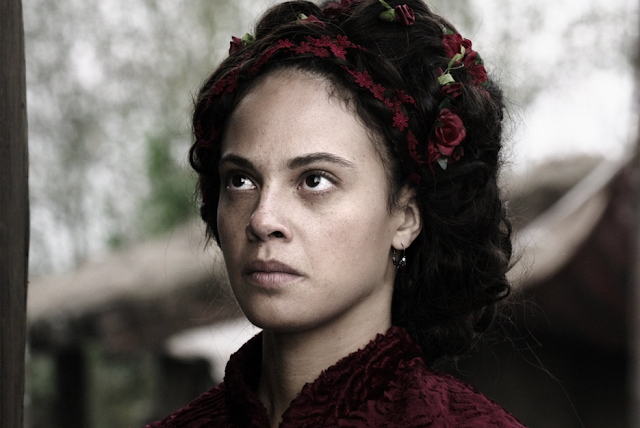 |
| I would also like to buy a drink for whoever did the lighting on this show. It's so gooooood! |

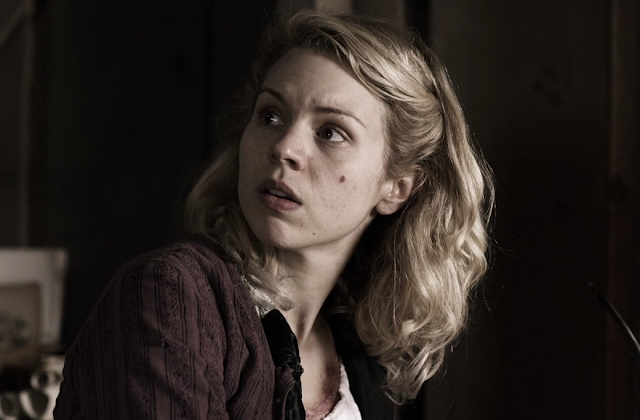

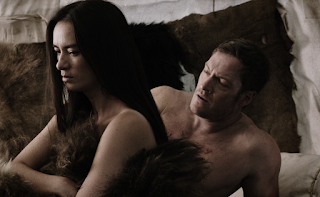

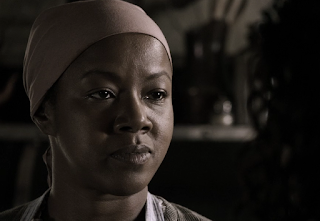


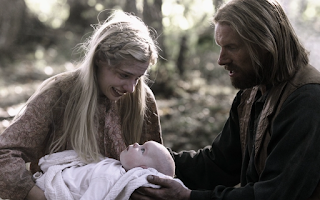
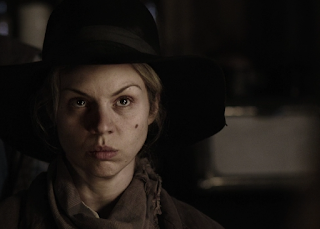
ESCORT
ReplyDeleteESCORTS
ESCORTS SERVICE
ESCORT SERVICE
ESCORT SERVICES
ESCORTS SERVICES
INTERNATIONALSEX GUIDE KOLKATA
CALL GIRLS NEAR ME
CALL GIRLFRIEND RELATIONSHIP
ESCORT SERVICES
KOLKATA SEX
CALL GIRL IN KOLKATA
ESCORT SERVICE IN KOLKATA
GIRLS WHATAPP NUMBER
ONLINE GIRLS
FEMALE ESCORTS
FEMALE ESCORT
CALL GIRL NAME AND MOBILR NUMBER
CALL GIRL KOLKATA
ESCORTS SERVICE
MASSAGE IN KOLKATA
GIRLS PHONE NUMBER
INDIAN MASSAGE PARLOUR SEX
ESCORTS SERVICES
CALL GIRLS NO
CALL GIRLS KOLKATA
BEAUTIFUL SEXY GIRLS
ESCORT KOLKATA
ESCORTS KOLKATA
ESCORT IN KOLKATA
ESCORTS IN KOLKATA
COLLEGE GIRL HOT
ESCORT SERVICE KOLKATA
KOLKATA VIP ESCORTS
KOLKATA HIGH PROFILE ESCORTS
To be very honest with you guys. Here at this site https://www.signnow.com/ask/remote-business-what-is-the-easiest-way-for-your-clients-to-sign-documents-online everything is on point. Which makes me so happy to be honest.
ReplyDelete